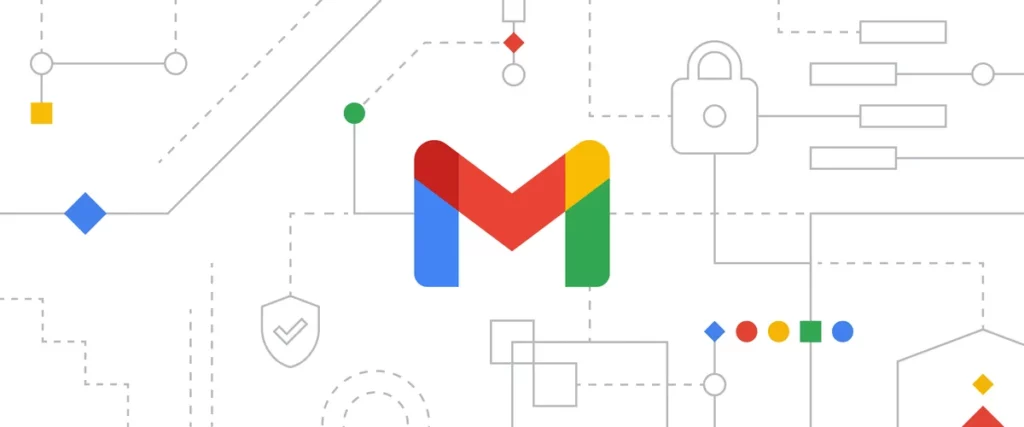From February 2024, Google and Yahoo will start enforcing big changes to how bulk email senders (people who send more than 5,000 messages to Gmail addresses per day) operate. From early next year, they’ll be required to authenticate their emails, allow for easy unsubscription and stay under a reported spam threshold.
Here’s quick rundown of the new requirements.
- Authenticate. Gmail will now require users who send over 5,000 emails to Gmail addresses daily to authenticate their emails by following well-established best practices.
- Easy unsubscription. Gmail will require large senders to give the recipients of their emails the ability to unsubscribe in one click. Senders are also required to process unsubscription requests within two days.
- Only send wanted emails. Gmail will now enforce a clear spam threshold to ensure users aren’t inundated with unwanted messages. The goal is clear: reduce inbox spam.
The potential business impact
Most marketers will already have implemented some form of those three changes so it shouldn’t be too much of a hassle to go the rest of the way. However, one thing to be aware of is that these changes apply to the whole of a company’s domain – which means that everyone sending emails must abide by the new rules, not just marketers.
That’s where things could get a little tricky, especially for salespeople who rely on sending out cold emails to try and secure new deals. So, somebody at the top will need to make sure everyone is sticking to the new regulations. That could be a pain, but the implications for non-compliance are clear!
Google is taking charge
Google wants to help reduce the level of spam most people encounter on a daily basis, and the new changes are in response to technology getting a whole lot cleverer. A.I. tools can already write emails that sound like they’re from humans – and that’s where these new rules come in to play.
But as well as providing a nicer user experience, Google is also protecting its bottom line. It needs people to use Gmail, and be in the inbox, because that’s where it displays ads. So, to continue earning money from those ads, it needs to keep Gmail user-friendly and key to people’s lives. One of the ways it can do that is to fight spam.
The new business requirements
Making it easier to unsubscribe is a fairly easy fix for marketers, but what is email authentication? Well, three mechanisms work together, which businesses will need to have set up by February 1st.
- Sender Policy Framework (SPF) helps identify the email servers allowed to send emails from their domain.
- DomainKeys Identified Mail (DKIM) adds a digital signature to outgoing mail, which verifies the message.
- Domain-based Message Authentication, Reporting and Conformance (DMARC) enables reporting on email authentication results and helps domain owners tell it what actions to take when an email fails authentication.
The pitfalls to avoid
As Google is going to be keeping a beady eye on spam rates, it’s important that businesses avoid having their emails flagged as spam by recipients. One way to do that is to avoid sending emails on the hour, or on the half-hours. That’s because most bulk emails are sent at those two times, which makes it easier for annoyed recipients to bulk flag them together. Of course, sending people emails they expect to receive, or emails that benefit them, is also a good way to go.
Making use of a preference centre is also a good idea as it lets users tell you how often to email them, and lets them indicate a preferred email topic. Using a preference centre will also help you increase your engagement with your list.
Another pitfall to avoid is focusing on quantity rather than quality.
Dana Carr, Director of Email Marketing, Optimove, via Martech
“The number of people receiving your emails is one number in a group of numbers that can hurt your reputation. That includes not only list size, but open rates. At the end of the day, all of these numbers are hurting your engagement metrics. Instead of thinking about list size, we need to think about segmentation and targeted content.”




RECOMMENDED FOR YOU
[STUDY] ChatGPT Powers Work And Life
OpenAI, in collaboration with Harvard economist David Deming, has…
OpenAI, in collaboration with Harvard economist David Deming, has…
LinkedIn Tests New Premium Tools for SMBs
LinkedIn is quietly piloting a new Premium offering designed…
LinkedIn is quietly piloting a new Premium offering designed…
Meta Brings AI Video Editing to Instagram and Meta AI
Meta has launched a new AI-powered video editing feature…
Meta has launched a new AI-powered video editing feature…